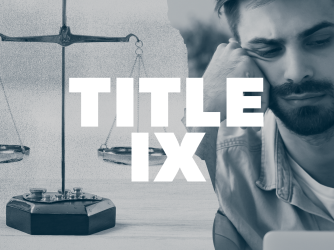Table of Contents
40 Percent of Minnesota College Students Say Certain Topics or Viewpoints Are 'Off Limits'
A report on higher education in Minnesota released this morning by the American Council of Trustees and Alumni (ACTA) with the Freedom Foundation of Minnesota features FIRE's work defending the First Amendment in the state. The report, "At a Crossroads: A Report Card on Public Higher Education in Minnesota" (PDF), includes a survey of students that presents some disturbing findings.
Of most interest for Torch readers are the responses to these two questions from a professional poll taken of students at the University of Minnesota - Twin Cities campus and St. Cloud State University:
"On my campus, there are certain topics or viewpoints that are off limits." [39.1 percent of students surveyed agreed]
"On my campus, the student newspaper is free to criticize the university administration without getting in trouble." [37.5 percent disagreed]
Given the state of speech codes on the campuses of U of M-Twin Cities and St. Cloud State (see below), we aren't surprised. Citing FIRE's speech code database, Spotlight: The Campus Freedom Resource, ACTA reports:
It is also notable that while Minnesota students overwhelmingly knew that the First Amendment protects their free-speech rights, they were largely unaware of whether their campuses had in place restrictive speech codes, which effectively ban certain types of expression. The Foundation for Individual Rights in Education, which maintains a comprehensive database of such policies, has concluded that restrictive policies are in place at U of M-Twin Cities and a number of institutions in the MnSCU system.
FIRE's Spotlight database includes a state-by-state rundown of the speech codes that restrict students' rights on campus. Minnesota's rundown is here. In particular, FIRE rates four public universities with the worst, "red light" rating, for having unconstitutional policies that clearly and substantially restrict freedom of speech: Bemidji State University, Southwest Minnesota State University, University of Minnesota - Morris, and University of Minnesota - Twin Cities. St. Cloud State is rated with a "yellow light," threatening free speech by having no less than four ambiguous policies that too easily encourage administrative abuse and arbitrary application.
The report also features FIRE's work at U of M-Twin Cities defending the freedom of conscience and academic freedom of students and faculty members in the university's College of Education and Human Development last year. In that case, the college's Race, Culture, Class, and Gender Task Group proposed a political litmus test for future teachers whereby those with the "wrong" social and political views were to receive remedial re-education, be weeded out, or be denied admission altogether. As ACTA states the case in the report:
[T[here is ongoing controversy over whether Minnesota's public universities are honoring these commitments [to academic freedom and freedom of speech]. In late 2009, U of M-Twin Cities drew criticism for a proposed teacher education framework that would have required students to display "cultural competence" and to accept predetermined viewpoints on controversial issues pertaining to race, culture, class, and gender. Several news outlets picked up on the story and the Foundation for Individual Rights in Education—a free-speech watchdog organization—sent a letter warning of the program's threats to freedom of conscience and expression.... The university's general counsel thereafter issued a letter maintaining that it would not enforce political or ideological litmus tests, but it remains to be seen whether problematic aspects of the Teacher Education Redesign Initiative will be adopted. [footnotes omitted]
We are still monitoring the situation closely. ACTA's report is worth a look by anyone interested in the state of freedom in Minnesota higher education.
Recent Articles
FIRE’s award-winning Newsdesk covers the free speech news you need to stay informed.

FIRE statement on campus violence and arrests

BREAKING: New Title IX regulations undermine campus free speech and due process rights

STATEMENT: Title IX regs mean students less likely to receive justice
